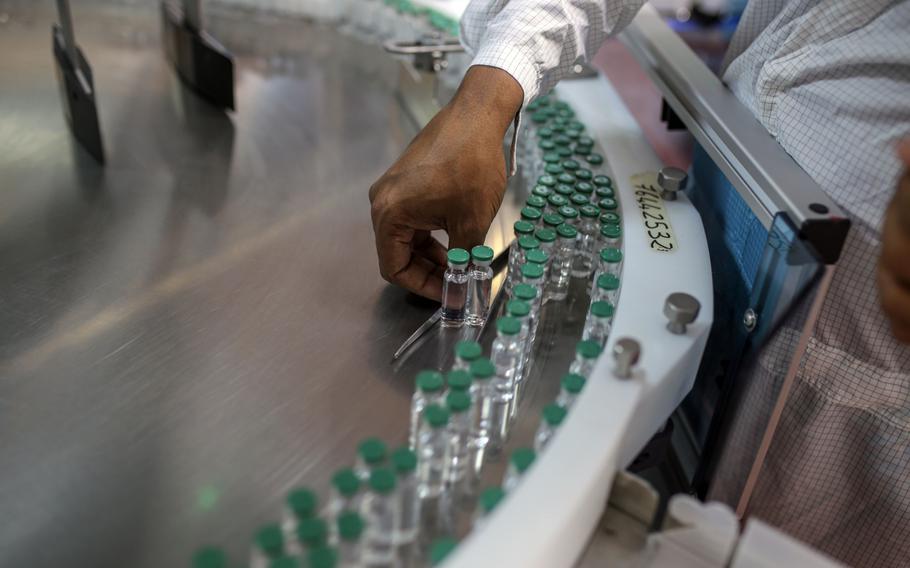Immune responses to the AstraZeneca Plc coronavirus vaccine improve with a longer gap of about 10 months between doses, and a third shot can boost antibody levels even further, according to a study.
Extending the gap between the first and second doses increased the level of protective antibodies, according to research from the University of Oxford published Monday. The researchers were also able to show for the first time that a booster given more than six months after the second dose induced a strong response and increased activity against variants.
Many governments are grappling with vaccine shortages and questions such as whether to give booster shots to ensure hospitals aren't overwhelmed this winter. The results may help countries determine whether to stretch their supplies by waiting to give second doses, while showing the way to improve protection — without completely redesigning vaccines — using a third dose. Most nations have recommended a gap of four to 12 weeks between Astra vaccines.
"This is about preparedness," Andrew Pollard, lead investigator on the Oxford vaccine trials, said at a press briefing Monday. This data show "we can boost responses giving another dose of the AstraZeneca-Oxford vaccine and that's really important."
More research on the duration of immunity from two doses and protection against variants would help determine whether booster doses are really needed, Pollard said.
The study found that antibodies induced after a single dose survived to some extent after one year. Still, after 180 days the levels were half those seen at the 28-day peak. A second dose increased antibody levels between four- and 18-fold by one month after the shot, however.
Volunteers in the latest study were drawn from Oxford's original early and late-stage trials for the vaccine last year. Thirty participants who only received a single dose in the trial were given a second one about 10 months after the first. An additional 90 participants from those studies received a third dose in March this year. All volunteers were between the ages of 18 and 55, reflecting the recruitment age at that stage of the trials last year.
Higher levels of neutralizing antibodies against the alpha, beta and delta variants of SARS-CoV-2 were also shown after a third dose than after the second one. The results support the idea that viral-vector vaccines can be used as boosters, which some scientists had been skeptical about because humans can build up an immunity to the vector — in this case a chimpanzee adenovirus.
Oxford and Astra have also started another trial to test a variant vaccine that has been adapted to try to better protect against the beta variant originally found in the U.K. The late-stage trial is expected to recruit about 2,250 participants across the U.K., Brazil, South Africa and Poland. The first participant was dosed June 27.
The shot will be given to people who have been fully vaccinated with two doses of the Astra vaccine or a messenger RNA shot, such as the ones from Pfizer Inc. and Moderna Inc., at least three months after their second dose. Non-vaccinated individuals will also be eligible to receive the variant vaccine — AZD2816 — with different intervals and combinations of the new and original shots being tested.
More than half a billion doses of the Astra-Oxford vaccine have already been sent to 168 countries, according to the researchers.

AstraZeneca vaccine on the production line. (Dhiraj Singh/Bloomberg)